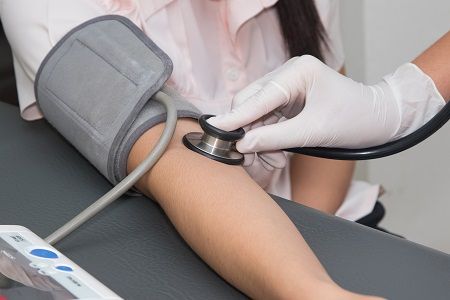Article
Higher Blood Pressure Could Contribute to Later Menopause Onset
Author(s):
Previous research has found that hypertension and cardiovascular health is linked to the age that a woman goes through natural menopause. A study led by researchers from the Netherlands aimed to find if blood pressure has an impact.

Previous research has found that hypertension and cardiovascular health is linked to the age that a woman goes through natural menopause. A study led by researchers from the Netherlands aimed to find if blood pressure has an impact.
Studies focusing on menopause continue to bring out insightful findings. It’s no secret that many health risks increase with age, so uncovering these issues in menopausal women is a needed area of study. At The North American Menopause Society 27th Annual Meeting (NAMS 2016) in Orlando, Florida, a team focused on cardiovascular influences.
Using 3,994 postmenopausal women from the Rotterdam Study (consisting of around 15,000 adults ages 45 and older), the team worked to find a possible association between age at natural menopause (ANM), systolic blood pressure (SBP), diastolic blood pressure (DBP), and hypertension. The women were separated into four groups based on ANM: early = ages 40 to 44, intermediate = ages 45 to 49, normal = ages 50 to 54, and late menopause = ages 55 to 60.
- MD Magazine is on Facebook, Twitter, Instagram, and LinkedIn!
Overall, ANM and SBP had a nonlinear connection. After adjusting for age, comorbidities, hormone replacement therapy, estradiol levels, and cardiovascular risk factors and medication, the results showed an association between early menopause and lower SPB, when compared to menopause. In addition, there was a lower prevalence of hypertension in women in early menopause as well as women in menopause who were younger.
“Bi-directional Mendelian randomization analysis showed no association between ANM genetic risk score, SBP, DBP, or HTA,” the report said. “Genetic risk scores of SBP and DBP were associated with higher ANM.” These scores were also linked to a greater probability of taking antihypertensive drugs.
The data suggests that it could be higher blood pressure or factors contributing to higher blood pressure (such as not taking the proper medication) that is connected to later onset of menopause.
Also on MD Magazine >>> More News from NAMS 2016 in Orlando





